The Nationalist Case for Caution
Over the last few weeks, we’ve been experiencing a rare phenomenon; politicians seem to have grown a spine. There’s tough talk of deportations and standing up to Islamic extremism. It’s far too good to be true. Many MPs and our Prime Minister have been living vicariously through Israel, springing to the defence of the Israelis and British Jews with extreme fervour. Cross-party leader support from Sunak and Starmer has been unwavering.
However, whilst the latter is facing rebellion from his immigrant and militant leftist contingent as Israeli aggression continues unabated, Sunak engaged in the humiliation ritual of meeting Israeli leaders at the King David Hotel. I’m unsure if a meeting between a sitting British PM and the Israeli leadership has been held there since Jewish terrorists bombed it, killing many Britons, but it’s certainly something I would not like to see again from a future PM.
The conflict in this area of the world does not particularly interest me. There are so many domestic problems facing Britain that I am somewhat dismayed that the sclerotic and otherwise necrotic government can rapidly reanimate when something so detached from us reaches their desks. As this latest crisis has rolled along several unfortunate reality checks have hit Britain. In an ideal world, we could completely wash our hands of it, but we are not in that position. Imported ethnic conflicts are coming to fruition and we need to navigate them as best we can.
Many Israelis were killed and over 100 hostages were taken, Israel retaliated with its usual tactic of bombing Gaza with extreme prejudice. The actions of Hamas provoked disgust from the wider British public, seeing people murdered in their homes does not sit particularly well, or so you would have thought. After the Israel response, pro-Palestinian demonstrations erupted across the UK. Among the usual suspects of white leftists was a sizeable ethnic minority contingent. London drew the most attention, at home and internationally, and most of the attendees were of minority ethnic backgrounds.
Between the messages of “Free Palestine” and “From the River to the Sea” less familiar ones started to emerge; the idea that what Hamas had achieved was anti-colonialism in action. This is where alarm bells should begin to ring, especially if you have been listening to leftist talking points in recent years or paying attention to protest actions. If decolonisation was not in fact simply tearing down statues or renaming streets but murdering your “oppressors” then perhaps this large and young contingent of resentful ethnic minorities could turn out to be a life-threatening problem. As the country moves toward the White British becoming a minority, as in London, this is a ticking time-bomb. When you see at the most recent protest, in which White people are attacked for defending the Cenotaph and being called “White Trash” by immigrants, the nature of this protest as anti-White decolonisation action becomes more clear.
MPs and media personalities began the tough talk immediately. “Deportations for anti-semitic students” and possible prison time for Hamas supporters. Nothing so far has come to fruition in that regard and deportations are unlikely to happen because the Tories have failed to dismantle the legal apparatus that allows the successful appealing of deportation efforts. Deportation efforts that are consistently hampered by an industry of state-leeching legal practices and lawyers. A more devious development appeared during the most recent protest with the publishing of an article exploring the “English roots of anti-Semitism.” A feeble attempt to paint these events as originating as a native White issue or an extension of historical anti-Semitism, not something artificially imported.
It was at this point I began to think “Where was this talk when minority rape gangs were exposed or terrorist attacks were carried out here?” It was non-existent. We were actually encouraged to “Not look back in anger” with special government networks rolling out I “heart” (city/town affected by terrorism) almost immediately and a deafening silence with regard to the former. Anybody that has spoken out about these issues has been frequently demonised or silenced, they have not enjoyed even a fraction of Government support that Israel and British Jews have received over the last few weeks.
In response to the hostage crisis in Israel, British Jews have been running a poster campaign and projecting the images on the back of trucks in London. These efforts have been disrupted in the form of posters being torn down or the vehicles being stopped by the police themselves for the sake of “public order.” The people doing a substantial amount of the poster tearing have been minorities and in a particularly amusing clip a Jewish man states to an unconcerned Black woman that he “supported Black Lives Matter.” For him he had been a good ally how could these people betray them? Don’t they know they’re only meant to undermine White British society? The great irony that many British Jews are pro-immigration and support leftist causes that have led to this is not lost on us. Indeed, many leftist Jews were marching for Palestine in a somewhat annihilationist expression of self-determination.
The police have been no less cowardly than usual in their reactions. Violent rhetoric against Jews and Israel, actual calls to Jihad, being hand waved away by the police. As one would expect British people with Union flags or the St. George’s Cross have been arrested, escorted away or spoken to with typical condescension. Since the Oldham and Bradford riots the British police have been deathly afraid of policing minority issues for fear of them rioting or triggering acts of terrorism. This fear needs to be presented to the public as the police are utterly incapable of presenting this issue themselves. We saw a little bit of spine from the armed officers a few weeks ago but they have since stood down, happy to operate in a system that oppresses Whites and one that will throw them under the bus for political expedience. I’m not sure what is going on with the police in the UK; large swathes captured by leftists is the easiest answer, but many officers must be “lying back” and “thinking of the pension.” In the most recent protests we have seen police officers injured, although it’s hard to muster sympathy. Police support on the Right is definitely on the wane.
The online nationalist space has been interesting. Many Third-Positionists have naturally aligned themselves with Palestine and other aggrieved minorities in order to “strike out” at “Jewish power structures” and to rebuke Israel itself as a “colonial holdout.” Fundamentally, the minorities they are in a temporary alliance with see no difference between Jews/Israelis and Whites. Their incredibly short-sighted tactic is stoking anti-White rhetoric that is all too often used to put White British interests down.
The counter-jihad types have once again insisted that this is proof that we are indeed in a civilisational war with Islam, but I tentatively disagree. We have a demographic problem that extends beyond the Islamic population here. This should not be a theological debate, it’s a question of race; the preservation of the White British. I would be lying if I said that the large protests taking on Islamic characteristics didn’t alarm me. It’s as if we were seeing a vision of the future. The prospect of large Islamic voting blocs is something that could have us leaning more on the counter-jihad ideology in the future. Thankfully our electoral system suppresses this somewhat, although that itself is a double-edged sword suppressing us.
Others have seen the Government’s bold talk of deportations as a good opportunity for us to begin broaching the demographic question. I am not convinced that pushing this under the guise of dealing with “anti-Semitism” will serve us in any real capacity long term. Like all rushed legislation, it actually has the ability to hurt us in the long run; you set the precedent that anti-Semitism is somehow antithetical to life in Britain then many similar pieces of legislation could follow. We are already staring down the possibility of a Labour government that wants to make “misogyny” a “hate crime”, we don’t need more restrictions to speech before then if they can be avoided.
One silver lining from this mess, if not a vehicle to directly push deportations, is that it shows the obvious failure of the enforced multiracial project we call Multiculturalism. The success of this project has been so heavily disputed in recent weeks after being somewhat cynically trotted out by Suella Braverman. One other potential benefit is that it once again allows us to hammer home the point about the blocks to deportations from the ECHR as well as the legal practices opposing them being funded by the taxpayer.
The left has revealed its agenda by living vicariously through the actions of Hamas and the government has revealed their priorities in jumping to the defence of Israel and British Jews. Nationalists are effectively homeless; we have to advocate for ourselves. Leading from our principles towards our goals and not simply hoping to achieve something by serving others who have so often opposed us. Immigration, repatriation, withdrawal from the ECHR, smashing the Equality Act and Human Rights Acts, are all things that take precedence. Can we take a step toward doing any of these things with this crisis? Undoubtedly, but we must be cautious.

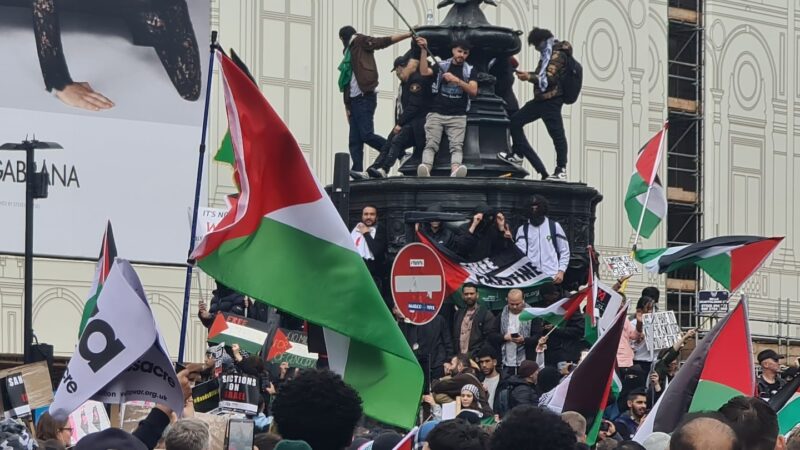
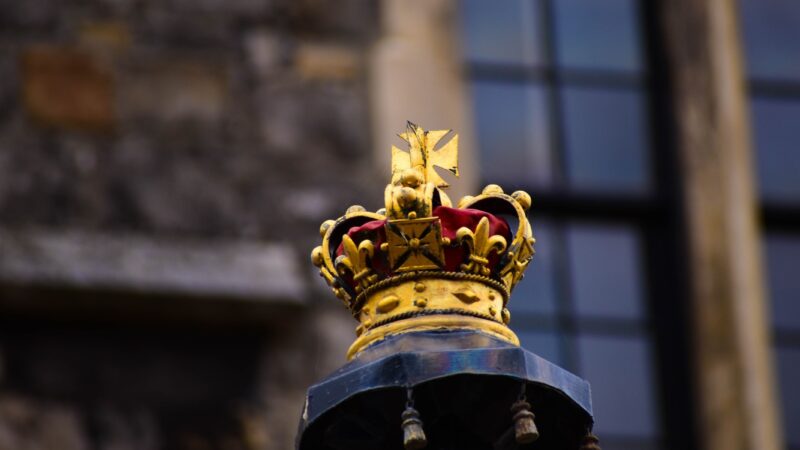

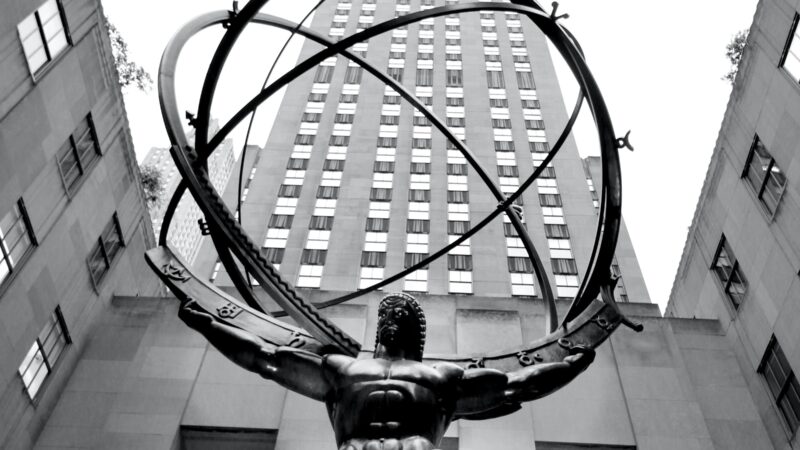


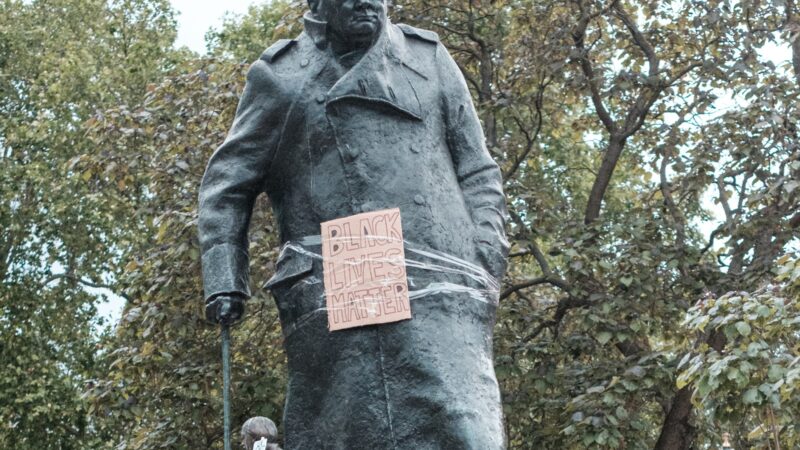

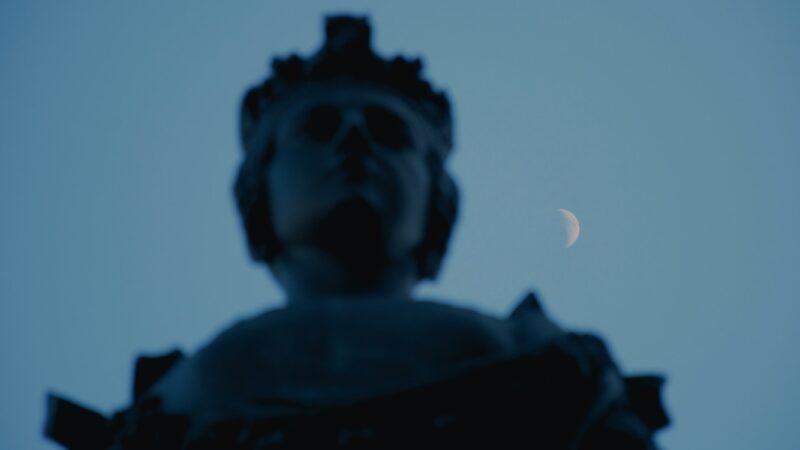
Atatürk: A Legacy Under Threat
The founders of countries occupy a unique position within modern society. They are often viewed either as heroic and mythical figures or deeply problematic by today’s standards – take the obvious examples of George Washington. Long-held up by all Americans as a man unrivalled in his courage and military strategy, he is now a figure of vilification by leftists, who are eager to point out his ownership of slaves.
Whilst many such figures face similar shaming nowadays, none are suffering complete erasure from their own society. That is the fate currently facing Mustafa Kemal Atatürk, whose era-defining liberal reforms and state secularism now pose a threat to Turkey’s authoritarian president, Recep Tayyip Erdoğan.
To understand the magnitude of Atatürk’s legacy, we must understand his ascent from soldier to president. For that, we must go back to the end of World War One, and Turkey’s founding.
The Ottoman Empire officially ended hostilities with the Allied Powers via the Armistice of Mudros (1918), which amongst other things, completely demobilised the Ottoman army. Following this, British, French, Italian and Greek forces arrived in and occupied Constantinople, the Empire’s capital. Thus began the partitioning of the Ottoman Empire: having existed since 1299, the Treaty of Sèvres (1920) ceded large amounts of territory to the occupying nations, primarily being between France and Great Britain.
Enter Mustafa Kemal, known years later as Atatürk. An Ottoman Major General and fervent anti-monarchist, he and his revolutionary organisation (the Committee of Union and Progress) were greatly angered by Sèvres, which partitioned portions of Anatolia, a peninsula that makes up the majority of modern-day Turkey. In response, they formed a revolutionary government in Ankara, led by Kemal.
Thus, the Turkish National Movement fought a 4-year long war against the invaders, eventually pushing back the Greeks in the West, Armenians in the East and French in the South. Following a threat by Kemal to invade Constantinople, the Allies agreed to peace, with the Treaty of Kars (1921) establishing borders, and Lausanne (1923) officially settling the conflict. Finally free from fighting, Turkey declared itself a republic on 29 October 1923, with Mustafa Kemal as president.
His rule of Turkey began with a radically different set of ideological principles to the Ottoman Empire – life under a Sultan had been overtly religious, socially conservative and multi-ethnic. By contrast, Kemalism was best represented by the Six Arrows: Republicanism, Populism, Nationalism, Laicism, Statism and Reformism. Let’s consider the four most significant.
We’ll begin with Laicism. Believing Islam’s presence in society to have been impeding national progress, Atatürk set about fundamentally changing the role religion played both politically and societally. The Caliph, who was believed to be the spiritual successor to the Prophet Muhammad, was deposed. In their place came the office of the Directorate of Religious Affairs, or Diyanet – through its control of all Turkey’s mosques and religious education, it ensured Islam’s subservience to the State.
Under a new penal code, all religious schools and courts were closed, and the wearing of headscarves was banned for public workers. However, the real nail in the coffin came in 1928: that was when an amendment to the Constitution removed the provision declaring that the “Religion of the State is Islam”.
Moving onto Nationalism. With its roots in the social contract theories of thinkers like Jean-Jacques Rousseau, Kemalist nationalism defined the social contract as its “highest ideal” following the Empire’s collapse – a key example of the failures of a multi-ethnic and multi-cultural state.
The 1930s saw the Kemalist definition of nationality integrated into the Constitution, legally defining every citizen as a Turk, regardless of religion or ethnicity. Despite this however, Atatürk fiercely pursed a policy of forced cultural conformity (Turkification), similar to that of the Russian Tsars in the previous century. Both regimes had the same aim – the creation and survival of a homogenous and unified country. As such, non-Turks were pressured into speaking Turkish publicly, and those with minority surnames had to change, to ‘Turkify’ them.
Now Reformism. A staunch believer in both education and equal opportunity, Atatürk made primary education free and compulsory, for both boys and girls. Alongside this came the opening of thousands of new schools across the country. Their results are undeniable: between 1923 – 38, the number of students attending primary school increased by 224%, and 12.5 times for middle school.
Staying true to his identity as an equal opportunist, Atatürk enacted monumentally progressive reforms in the area of women’s rights. For example, 1926 saw a new civil code, and with it came equal rights for women concerning inheritance and divorce. In many of these gender reforms, Turkey was well-ahead of other Western nations: Turkish women gained the vote in 1930, followed by universal suffrage in 1934. By comparison, France passed universal suffrage in 1945, Canada in 1960 and Australia in 1967. Fundamentally, Atatürk didn’t see Turkey truly modernising whilst Ottoman gender segregation persisted
Lastly, let’s look at Statism. As both president and the leader of the People’s Republican Party, Atatürk was essentially unquestioned in his control of the State. However, despite his dictatorial tendencies (primarily purging political enemies), he was firmly opposed to dynastic rule, like had been the case with the Ottomans.
But under Recep Tayyip Erdoğan, all of this could soon be gone.
Having been a high-profile political figure for 20 years, Erdoğan has cultivated a positive image domestically, one focused on his support for public religion and Turkish nationalism, whilst internationally, he’s received far more negative attention focused on his growing authoritarian behaviour. Regarded widely by historians as the very antithesis of Atatürk, Erdoğan’s pushback against state secularism is perhaps the most significant attack on the founder’s legacy.
This has been most clearly displayed within the education system. 2017 saw a radical shift in school curriculums across Turkey, with references to Charles Darwin’s theory of evolution being greatly reduced. Meanwhile, the number of religious schools has increased exponentially, promoting Erdoğan’s professed goal of raising a “pious generation of Turks”. Additionally, the Diyanet under Erdoğan has seen a huge increase in its budget, and with the launch of Diyanet TV in 2012, has spread Quranic education to early ages and boarding schools.
The State has roles to play in society but depriving schoolchildren of vital scientific information and funding religious indoctrination is beyond outrageous: Soner Cagaptay, author of The New Sultan: Erdoğan and the Crisis of Modern Turkey, referred to the changes as: “a revolution to alter public education to assure that a conservative, religious view of the world prevails”.
There are other warning signs more broadly, however. The past 20 years have seen the headscarf make a gradual reappearance back into Turkish life, with Erdoğan having first campaigned on the issue back in 2007, during his first run for the presidency. Furthermore, Erdoğan’s Justice and Development Party (AKP), with its strong base of support amongst extremely orthodox Muslims, has faced repeated accusations of being an Islamist party – as per the constitution, no party can “claim that it represents a form of religious belief”.
Turkish women, despite being granted legal equality by Atatürk, remain the regular victims of sexual harassment, employment discrimination and honour killings. Seemingly intent on destroying all the positive achievements of the founder, Erdoğan withdrew from the Istanbul Convention (which forces parties to investigate, punish and crackdown on violence against women) in March 2021.
All of these reversals of Atatürk’s policies reflect the larger-scale attempt to delete him from Turkey’s history. His image is now a rarity in school textbooks, at national events, and on statues; his role in Turkey’s founding has been criminally downplayed.
President Erdoğan presents an unambiguous threat to the freedoms of the Turkish people, through both his ultra-Islamic policies and authoritarian manner of governance. Unlike Atatürk, Erdoğan seemingly has no problems with ruling as an immortal dictator, and would undoubtedly love to establish a family dynasty. With no one willing to challenge him, he appears to be dismantling Atatürk’s reforms one law at a time, reducing the once-mythical Six Arrows of Kemalism down to a footnote in textbooks.
A man often absent from the school curriculums of Western history departments, Mustafa Kemal Atatürk proved one of the most consequential leaders in both Turkish history, and the 20th Century. A radical and a revolutionary he may have been, but it was largely down to him that the Turkish people received a recognised nation-state, in which state secularism, high-quality education and equal civil rights were the norm.
In our modern world, so many of our national figures now face open vilification from the public and politicians alike. But for Turkey, future generations may grow up not even knowing the name or face of their George Washington. Whilst several political parties and civil society groups are pushing back against this anti-Atatürk agenda, the sheer determination displayed by Erdoğan shows how far Turks must yet go to preserve the founder’s legacy.
Photo Credit.